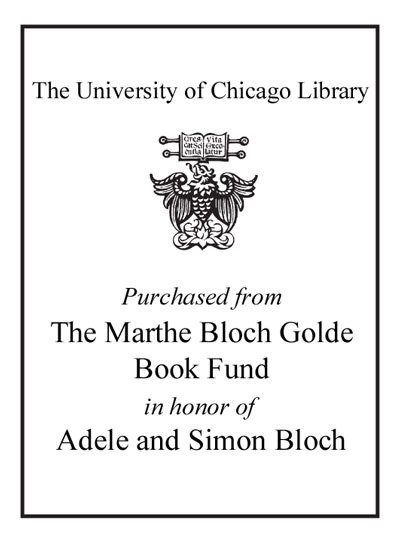Review by Booklist Review
The Chicago Cubs have had a 50-year reign as baseball's lovable losers, but this chronicle of their tear-stained history is a winner all the way. Popular sports historian Golenbock covers the origins of the team, including its early, often successful years, and gradually segues into the post-World War II malaise, which threatens to extend into the next millennium. The follies of chewing-gum magnate Phil Wrigley and his family are detailed, as is the corporate buffoonery of the team's current owner, the Chicago Tribune. As the history moves closer to the present, Golenbock interviews players, managers, coaches, and fans. It's what he does best. The accounts by the players of the infamous 1969 collapse, the Durocher years, and the team's recent ups and downs are clearly the highlights. Baseball players are very good at remembering details, and few can draw them out like Golenbock. Cable has created Cub fans all over the world, and each of them will find something to enjoy in this celebratory history of their team. (Reviewed Feb. 1, 1996)0312140797Wes Lukowsky
From Booklist, Copyright (c) American Library Association. Used with permission.
Review by Publisher's Weekly Review
The Chicago Cubs have not won a World Series since 1908 or the National League pennant since 1945. Yet the team has some of the most devoted fans in all of sport. Golenbock (The Bronx Zoo) looks at the reasons for the loyalty of Cubs fans, and along the way traces the history of the team through interviews with numerous former players, coaches and executives. In fact, the history of the Cubs is pretty much the history of the National League. The first Chicago baseball clubs were founded in the 1860s, but the team that would become the Cubs was largely the creation of Al Spalding. He not only was a star player, but became the Cubs' owner and in that capacity helped write the constitution that became the foundation of Major-League Baseball. Golenbock examines all the various Cub erasSpalding/Cap Anson; the Wrigley years, of William and son Phillipand closes with the current owners of the team, the Tribune Company. Written as an oral history, the text becomes repetitive at times, but Cub fans and baseball historians will find the work hard to put down. Photos . (Mar.) (c) Copyright PWxyz, LLC. All rights reserved
(c) Copyright PWxyz, LLC. All rights reserved
Review by Library Journal Review
Golenbock, author of two earlier team oral histories, Bums (LJ 9/15/84) and Fenway (LJ 2/1/92), and many other sports titles, has crafted another winner about a team often thought of as lovable losers. He shows how the charming Wrigley Field, one of the oldest ballparks in the Major Leagues, has played a big role in the team's popularity. A solid work recommended for medium and large public libraries. (c) Copyright 2010. Library Journals LLC, a wholly owned subsidiary of Media Source, Inc. No redistribution permitted.
(c) Copyright Library Journals LLC, a wholly owned subsidiary of Media Source, Inc. No redistribution permitted.
Review by Kirkus Book Review
An okay history of the hapless but beloved Chicago Cubs, a baseball team that hasn't won a World Series since 1908 or played in one since 1945. Though this takes the form of an oral history, Golenbock (Wild, High and Tight: The Life and Death of Billy Martin, 1994, etc.) has to borrow heavily from long-published sources to tell the story of the early years, starting with Albert Spalding's 1876 desertion of the Boston club to pitch for Chicago's White Stockings. He would eventually own the ball team and lead it to a dynasty in the 1880s. They became the Cubs in 1902, and in 1906, under player/manager Frank Chance, they won 116 games. The Cubs lost to the crosstown White Sox in the World Series, but won back- to-back world championships in 1907 and 1908 against Ty Cobb and the Detroit Tigers. It would be their last World Series victory, though they won pennants in 1910, 1918, and again in 1945. Veterans of that WW II team--Phil Cavaretta, Len Merullo, Dewey Williams- -recall the series for Golenbock, still second-guessing manager Charlie Grimm's selection of a pitcher for the seventh and deciding game. Some great and memorable ballplayers have been Cubs, and Golenbock introduces them throughout his narrative: Gabby Hartnett, Hack Wilson, Ferguson Jenkins, Dizzy Dean, manager Leo ``The Lip'' Durocher, Bruce Sutter, Lou Brock and, of course, ``Mr. Cub,'' Ernie Banks, a two-time MVP, with 512 career home runs. (Curiously, the affable Banks, an executive with the Cubs, is not among Golenbock's interviewees, a serious omission.) The Cubs' woes in recent years culminated when future Hall of Famer Ryne Sandberg walked away from a $28 million contract in 1994 out of sheer frustration. (Sandberg has recently rejoined the team.) Anecdotally interesting, but Golenbock could have done more legwork in some crucial areas, most notably Banks's outstanding career. (50 b&w photos)
Copyright (c) Kirkus Reviews, used with permission.
Review by Booklist Review
Review by Publisher's Weekly Review
Review by Library Journal Review
Review by Kirkus Book Review


